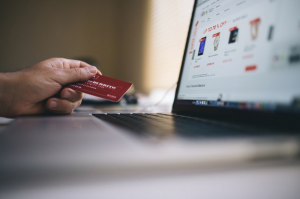While there are many concerns about online security which will always be present; rest assured that brokers themselves have a very, very substantial stake in making you feel comfortable about the level of security being used. All online broker websites have had some of their site dedicated to describing the steps they employ to safeguard your transactions. Whilst it is true that nothing is absolutely safe in this world, online trading certainly needs to provide security for your financial transactions.
 How is this for a statistic — throughout the first half of 2015, there were 888 statistics breaches globally, which works out to about five every 24 hours. That might seem rather innocuous, yet there is no sign that social security numbers were tapped; yet it has the potential to be incredibly harmful. Accounts are very vulnerable as they are really just like a vault with one thin door. Wherever you do your online trading, it is important to acknowledge that vulnerability exists, and that your broker accounts could easily be next. Here are some simple steps to prevent this from happening to you in the future.
How is this for a statistic — throughout the first half of 2015, there were 888 statistics breaches globally, which works out to about five every 24 hours. That might seem rather innocuous, yet there is no sign that social security numbers were tapped; yet it has the potential to be incredibly harmful. Accounts are very vulnerable as they are really just like a vault with one thin door. Wherever you do your online trading, it is important to acknowledge that vulnerability exists, and that your broker accounts could easily be next. Here are some simple steps to prevent this from happening to you in the future.
This first safety measure offered by most agents and financial institutions imposes an excess layer of security. Rather than simply allowing complete account access with a username and password, some mortgage broker websites may require further verification if certain actions are taken, such as a change in contact information, during fund transfers, or during account withdrawals. These are extra added on safety features that add extra security whenever a significant change is made to your account. Many financial service firms now supply this, but you might want to make sure it is implemented. Your password, email address or telephone number is altered, so you are able to respond if you did not update the info. It is worth signing up for each excess security measure your broker offers. You can generally do this within your account profile (there is probably a safety tab) or by calling customer services. You really should be protecting yourself and your investments, as you need to live a clean online financial lifestyle, and this is one means to do it; buy a cheap computer that you use just for obtaining bank and brokerage accounts and other sensitive financial information. This will protect you against malware getting onto your computer, which may then steal your passwords as you log into your accounts.
The biggest risk of malware for mortgage brokers is what is called cross contamination. This is when you open infected email attachments or your children download something off the internet, or have even visited an infected site. If you buy a computer that you do not use for email or surfing, you do not give access to your children, and you do not plug USB drives into, the odds of becoming infected are minimal. An entirely new computer may seem extreme, but nowadays, malware is sophisticated enough to justify it. As it can skip anti-virus applications, and even scanning with something like malware bytes will not capture everything. Purchasing a small laptop for under $250 may end up being your very best investment of all. Do not let your guard down whilst using online platforms.
The method of cleaning up after a data breach on a mortgage broker website is becoming familiar, but this sort of monitoring has a drawback. Consumers are vigilant following the online assault, then, tend to gradually let down their guard; after all, a security company is watching their backs. That means all consumers will need to be watching their back nowadays whilst using online broker sites, whether they have been a victim or not.

